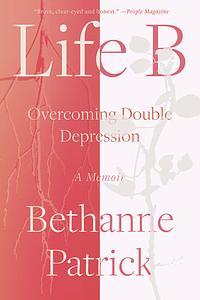You need to sign in or sign up before continuing.
Take a photo of a barcode or cover
"This one was working." — Gertrude Stein
On the Relation between Triple Depression and the Third Estate:
Eugene Thacker's remarks in the largely unremarkable, In The Dust of This Planet (2011), are so much dross in comparison with the clarity of his introductory statement: anti-natalists don't kill themselves simply because suicide remains a Positive act. So it happens that one may find oneself a remarkably productive academic success, putting together a dissertation, publishing several books to critical acclaim, and finally a professor of media studies at The New School with a full teaching load, all ostensibly without abandoning this commitment. ("And you may find yourself behind the wheel of a large automobile.") We are suspending our aversion to armchair-psychiatry to suspect Thacker (and others) of going beyond dysthymic disorder with depression (AKA double depression) to reach dysthymic disorder with depression with dysthymic production (AKA triple depression). This one was working; a depression which is producing a surplus value, but a negative one for us.
Whereas [triple depression] criticizes itself constantly; constantly interrupt itself in its own course; comes back to what seems to have been accomplished, in order to start over anew; scorns with cruel thoroughness the half measures, weaknesses and meannesses of its first attempts; seems to throw down its adversary only in order to enable it to draw fresh strength from the earth, and again, to rise up against it in more gigantic stature; constantly recoils in fear before the undefined monster magnitude of its own objects—until finally that situation is created which renders all retreat impossible, and the conditions themselves cry out: "Hic Rhodus, hic salta!" — Marx
Some further examples of Doubling:
"If you strike me down now I shall become twice as depressed as you can possibly imagine." — Lucas
"You must go on. I can't go on. I'll go on. I can't go on. I'll go on." — Beckett
In this brave and candid memoir, Bethanne Patrick looks back on her life with a new understanding, one born of a fairly recent diagnosis of double depression, which Patrick defines as a mental illness "in which chronic depression spirals into major depressive episodes during times of great stress." In less clinical terms, Patrick writes, "What all this boiled down to for me was bad days, bad days, bad days, and some worse days."
Read my full review at the New York Journal of Books.
https://www.nyjournalofbooks.com/book-review/life-b-overcoming-double-depression
Read my full review at the New York Journal of Books.
https://www.nyjournalofbooks.com/book-review/life-b-overcoming-double-depression
challenging
dark
emotional
hopeful
informative
inspiring
reflective
sad
medium-paced
Was too depressing. Probably would need to be more emotionally prepared to finish
emotional
informative
inspiring
reflective
slow-paced
This wasn't my favorite depression memoir as I didn't find it as relatable and the writing style was hard to follow at times however the author was truly honest and it shows in her raw writing which I give her props for!
Graphic: Chronic illness, Mental illness, Suicidal thoughts
emotional
reflective
medium-paced
emotional
I'm a bit conflicted on this memoir. First and foremost, I want to acknowledge how incredibly brave and courageous Bethanne Patrick is to share her very personal story about being diagnosed, at 52, with double depression. If you, like me, haven't heard of the term before, the commonly held definition is that it's a combination of PDD (Persistent Depressive Disorder), a chronic depression that's present all the time, and MDD (Major Depressive Disorder), known as clinical depression resulting from a significant event (or events.)
Hence, double depression.
In her memoir, Bethanne writes about the various mental illnesses present throughout her immediate family of origin, particularly with her grandmothers, and the impact this legacy had on her formidable years. After getting married right after graduating from Smith College, she struggles to adjust as a young military spouse overseas. She is frustrated about the difficulties in establishing a writing career (more on this in a moment) and the sacrifices, including a dozen moves, she's made for her husband. Bethanne's accounts of her challenging relationships with her two daughters make for some of the most heartbreaking passages in the book. (In one scene, her daughter Martha confronts her by saying she "never did anything" for her. "You didn't cook. You never did the laundry. You didn't come to any of my soccer games. When my friends came over you were always in bed.")
All of this is a lot. From having a front-row seat to several loved ones' lifelong battles with depression and anxiety, I can certainly empathize with and understand how the intersection of genetics and life's circumstances ultimately led to the double depression diagnosis.
But I want to address three issues that made this a 3-star read for me.
1) A recurrent theme and source of frustration to Bethanne is her difficulty in establishing a writing career. I'm not a military spouse, but I know from others who have been that it's extremely difficult to sustain a career when your life consists of frequent moves.
I was eager to read this book because Bethanne Patrick has been a presence in the book world for many years. I remember being at a book event (maybe the Book Blogger Convention in 2010?) and listening to her on a panel, and thinking how accomplished she was as a writer, reviewer, and critic. She was a big part of Twitter and for all I know she still may be (I deleted my account last fall). There, she created the viral hashtag #FridayReads. A quick search shows that she has written or contributed to 10 books.
So it was a little surprising to find zero mention of any of this in Life B: Overcoming Double Depression. There's somewhat of an explanation in the acknowledgements: Bethanne mentions that she and her agent amicably parted ways because of her decision not to include "a story" about her work in publishing. I respect that decision, but I wish I understood more of why it wasn't included. I think this would have been a stronger memoir if there was some discussion of how she was able to create what is clearly a successful career and to take pride and ownership in doing so. To me, this was a glaring omission.
2) Related to the above, I felt that the memoir underdelivered on the subtitle. I wanted to understand a bit more about the specific ways she overcame double depression, and I'd have to assume that her work as a freelance writer, reviewer, critic, and podcaster was and still is part of that. There's some discussion about practicing yoga (she's a fan) and medication, but it felt a bit glossed over and commonplace. I also wanted a deeper dive into the Life B analogy, or an extension of it, somehow, beyond this:
"Two weeks later, after dutifully downing a green-and-white capsule daily with my coffee, I woke up and knew something had shifted. It was as distinct as the moment when the optometrist clicks two lenses into place and you can suddenly read everything on your chart. 'Which is better?' says the optometrist. 'A or B' If she took one of those lenses away, I would have Life A. Life A is blurry, fuzzy, difficult to decipher. When she puts it back into place, I have Life B. Life B is clear, sharp, delineated. I chose Life B. In Life B, someone identified what was wrong inside me and had the tools necessary to fix it. I didn't think, then, of all of the things medicine cannot fix."
3) There was something about the writing style that didn't work for me. It's clunky in parts (the above quoted passage is an example), there are several incorrect usages of semicolons, and the narrative had abrupt transitions and time jumps. It felt like I was reading someone's journal. It felt like it needed at least another round of edits.
I don't mean to be harsh or do this memoir a disservice or minimize everything that the author went through. Although this didn't quite work for me, I admire her for writing about a condition that, even in 2023, still holds considerable stigma.
Read for Mental Health Awareness Month (May).
Hence, double depression.
In her memoir, Bethanne writes about the various mental illnesses present throughout her immediate family of origin, particularly with her grandmothers, and the impact this legacy had on her formidable years. After getting married right after graduating from Smith College, she struggles to adjust as a young military spouse overseas. She is frustrated about the difficulties in establishing a writing career (more on this in a moment) and the sacrifices, including a dozen moves, she's made for her husband. Bethanne's accounts of her challenging relationships with her two daughters make for some of the most heartbreaking passages in the book. (In one scene, her daughter Martha confronts her by saying she "never did anything" for her. "You didn't cook. You never did the laundry. You didn't come to any of my soccer games. When my friends came over you were always in bed.")
All of this is a lot. From having a front-row seat to several loved ones' lifelong battles with depression and anxiety, I can certainly empathize with and understand how the intersection of genetics and life's circumstances ultimately led to the double depression diagnosis.
But I want to address three issues that made this a 3-star read for me.
1) A recurrent theme and source of frustration to Bethanne is her difficulty in establishing a writing career. I'm not a military spouse, but I know from others who have been that it's extremely difficult to sustain a career when your life consists of frequent moves.
I was eager to read this book because Bethanne Patrick has been a presence in the book world for many years. I remember being at a book event (maybe the Book Blogger Convention in 2010?) and listening to her on a panel, and thinking how accomplished she was as a writer, reviewer, and critic. She was a big part of Twitter and for all I know she still may be (I deleted my account last fall). There, she created the viral hashtag #FridayReads. A quick search shows that she has written or contributed to 10 books.
So it was a little surprising to find zero mention of any of this in Life B: Overcoming Double Depression. There's somewhat of an explanation in the acknowledgements: Bethanne mentions that she and her agent amicably parted ways because of her decision not to include "a story" about her work in publishing. I respect that decision, but I wish I understood more of why it wasn't included. I think this would have been a stronger memoir if there was some discussion of how she was able to create what is clearly a successful career and to take pride and ownership in doing so. To me, this was a glaring omission.
2) Related to the above, I felt that the memoir underdelivered on the subtitle. I wanted to understand a bit more about the specific ways she overcame double depression, and I'd have to assume that her work as a freelance writer, reviewer, critic, and podcaster was and still is part of that. There's some discussion about practicing yoga (she's a fan) and medication, but it felt a bit glossed over and commonplace. I also wanted a deeper dive into the Life B analogy, or an extension of it, somehow, beyond this:
"Two weeks later, after dutifully downing a green-and-white capsule daily with my coffee, I woke up and knew something had shifted. It was as distinct as the moment when the optometrist clicks two lenses into place and you can suddenly read everything on your chart. 'Which is better?' says the optometrist. 'A or B' If she took one of those lenses away, I would have Life A. Life A is blurry, fuzzy, difficult to decipher. When she puts it back into place, I have Life B. Life B is clear, sharp, delineated. I chose Life B. In Life B, someone identified what was wrong inside me and had the tools necessary to fix it. I didn't think, then, of all of the things medicine cannot fix."
3) There was something about the writing style that didn't work for me. It's clunky in parts (the above quoted passage is an example), there are several incorrect usages of semicolons, and the narrative had abrupt transitions and time jumps. It felt like I was reading someone's journal. It felt like it needed at least another round of edits.
I don't mean to be harsh or do this memoir a disservice or minimize everything that the author went through. Although this didn't quite work for me, I admire her for writing about a condition that, even in 2023, still holds considerable stigma.
Read for Mental Health Awareness Month (May).





